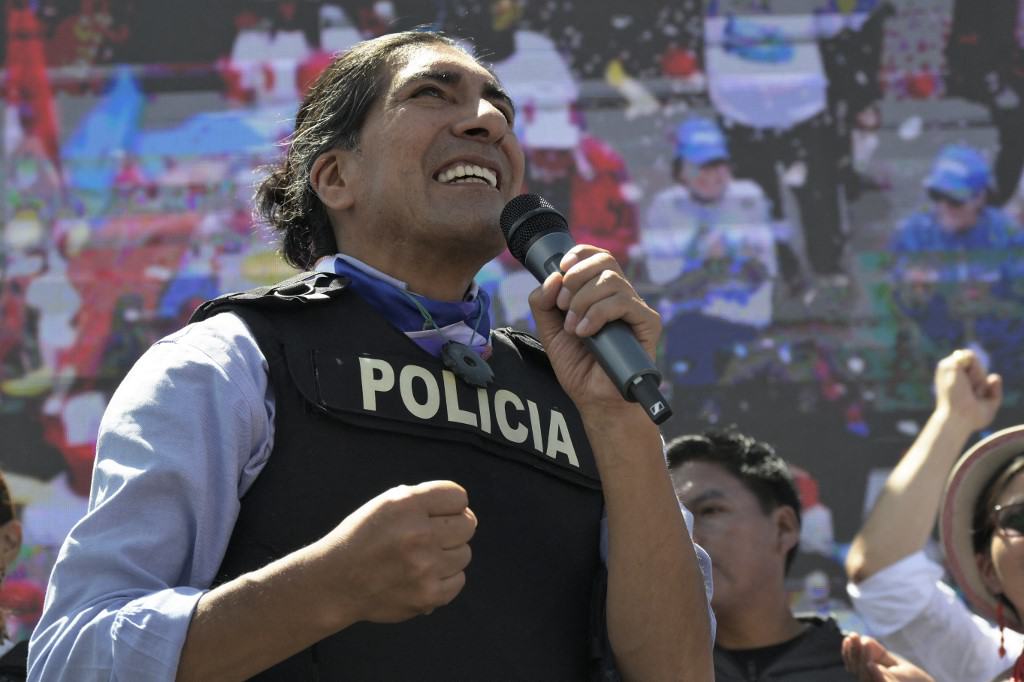Amid the shock over the shooting death of a candidate and violence linked to drug trafficking, Ecuador will vote this Sunday in early elections to choose a new president and end an institutional crisis.
The right-wing president Guillermo Lasso, cornered by an impeachment trial, dissolved the opposition Congress in May and called early general elections.
But 11 days before the vote, the assassination of presidential candidate Fernando Villavicencio as he left a campaign event overshadowed the elections.
“These are completely atypical elections, in a basically horrific situation that Ecuador is going through due to the violence that was already installed, but which manifests itself in a more acute and atrocious way with the murder” of the politician, said political scientist Anamaría Correa Crespo, coordinator of International Relations at the University of San Francisco in Quito.
The crime altered the electoral spectrum. Luisa González, dauphin of former socialist President Rafael Correa (2007-2017), leads favorably in the polls, but without the sufficient percentage of voting intention to avoid a runoff. To win in the first round, one must obtain 40% of valid votes with a 10-point advantage over the second-place finisher.
Behind González are journalist Christian Zurita, friend and replacement of Villavicencio; former sniper and paratrooper Jan Topic, indigenous leader Yaku Pérez and former Vice President Otto Sonnenholzner.
The 137 members of the National Assembly will also be elected to complete the current four-year term until May 2025. Some 13.4 of the 18.3 million Ecuadorians must exercise the mandatory vote between 7:00 a.m. and 5:00 p.m. local time (12:00 p.m. and 10:00 p.m. GMT).
Emotive vote
The face of the deceased Villavicencio will appear on the ballot papers along with seven other candidates, as they were already printed when he was gunned down by a Colombian hitman.
Shortly before being murdered, the journalist and former lawmaker had accused the detained leader of the Los Choneros criminal gang, allied with the Sinaloa Mexican cartel, of threatening him with death.
He had also reported to the prosecutor’s office parliamentarians, some of them Correists, for allegedly being involved in a plan to end his life. After the assassination, Luisa González’s popularity was damaged.
Her mentor Correa and Villavicencio were bitter rivals, since one of Villavicencio and Zurita’s journalistic investigations led to Correa’s conviction in absentia to eight years in prison for corruption against the former president.
“We were going to win in a single round” but Villavicencio’s murder “moved the electoral board,” admitted Correa, who has lived in Belgium since leaving power. From exile, he argued that this is a “political plot” to accuse Correism of the crime and benefit the right “to achieve a second round, for everyone to unite and defeat us.”
Political scientist Correa Crespo dismisses, however, that “the impact is as strong as to alter the fact that she will be in the second round,” scheduled for October 15.
Luisa González leads two recent polls (with 24% and 24.9%). One of them, by the Cedatos firm, placed Villavicencio second (12.5%) and the right-winger Jan Topic third (12.2%).
For analyst Blasco Peñaherrera Solah, Correism could receive a “punishment” at the polls. “We are going to have an emotive vote” as happened in 1990 in Colombia, when liberal César Gaviria was elected after taking the place of Luis Carlos Galán, a former journalist who confronted drug trafficking and was assassinated by hitmen.
Difficult times
Topic, a former member of the French Foreign Legion, promises an iron fist against gangs emulating the work of Salvadoran President Nayib Bukele.
Correa Crespo notes that “there is a rise” in his popularity. He now appears among the leaders in some polls. At the bottom are right-winger Daniel Noboa and center-right candidates Xavier Hervas and Bolívar Armijos. During the campaign for these elections, a mayor, a congressional candidate and a local Correist leader were also murdered.
“We are experiencing very difficult times for our democracy,” says the political scientist, for whom “the penetration of drug trafficking in Ecuador (…) has been going on for several years. It has been a perhaps silent phenomenon, but one that is demonstrating its power.”
Ecuador faces an onslaught of drug trafficking and organized crime.
Gangs linked to Mexican and Colombian cartels at war for control leave prison massacres with more than 430 inmates killed since 2021 and a record number of homicides on the streets of 26 per 100,000 inhabitants in 2022, almost double the previous year.






